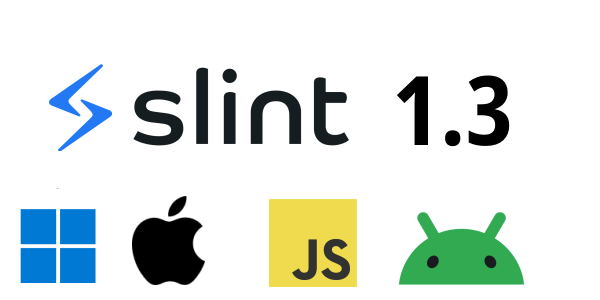Tobias Hunger
A Slint fanboy from Berlin.
- 3 Posts
- 11 Comments

 41·7 months ago
41·7 months agoI’d go for open source projects. They usually have bigger code bases and good practices, that they enforce on their contributors with code reviews and such.
It’s a good way to get feedback on your code, something miss out on personal projects and get much less of in university and corporate projects.
That depends a lot on how you define “correct C”.
It is harder to write rust code than C code that the compiler will accept. It is IMHO easier to write rust code than to write correct C code, in the sense it only uses well defined constructs defined in the C standard.
The difference is that the rust compiler is much stricter, so you need to know a lot about details in the memory model, etc. to get your code past the compiler. In C you need the same knowledge to debug the program later.
That depends on how you decide which bucket something gets thrown into.
The C++ community values things like the RAII and other features that developers can use to prevent classes of bugs. When that is you yard-stick, then C and C++ are not in one bucket.
These papers are about memory safety guarantees and not much else. C and C++ are firmly in the same bucket according to this metric. So they get grouped together in these papers.

 2·1 year ago
2·1 year agoThe quote above covered exactly what you just said: “yet were also more likely to rate their insecure answers as secure compared to those in our control group” at work :-)

 281·1 year ago
281·1 year agoTo be fair: snaps can work for all kinds of things all over the stack from the kernel to individual applications, while flatpak just does applications. Canonical is building a lot around those abilities to handle lower level things, so I guess it makes sense for them.
IMHO flatpak does the applications better and more reliably and those are what I personally care for, so I personally stay away from snaps.

 33·1 year ago
33·1 year agoI am looking forward to follow up articles like “woodworking as a career isent right for me”, “bookkeeping as a career isent right for me” and the really enlightening “any job sucks when your boss is shit”.

 12·1 year ago
12·1 year agoThe problem is that you lose out on dev attention when moving away from github.
I moved my projects into github when placeholder projects literally containing a README with a link to the real repo only got way more interaction on github than in the real repository: More stars, more views, more issue reports and even more PRs (where the devs have obviously Cloned the repo from the actual repository but could not be arsed to push there as well).
If you want your project to be visible, it needs to be on github at this point in time:-(

 1·1 year ago
1·1 year agoThe basics are all the same:. memory, cpus and caches in between ;-)
But rust does approach many things very differently from C or C++. Learning those new approaches takes time and practice.

 1·1 year ago
1·1 year agoWatch out: That mindset is what got me into Rust in the first place!
I was so fed up with everybody drowning on about Rust that I thought I need to read up on it a bit so that I can argue against the hype. I am a seasoned C++ dev after all, I use a language that I picked because it allowed for robust and fast code. What could Rust add on top of that?
Well, I have a job working almost exclusively with rust now and do not plan to ever go back.

 1·1 year ago
1·1 year agodeleted by creator

 0·2 years ago
0·2 years agoWhat is actually meassured there? “Line goes down” is not necessary a bad thing:-)

Read the proposal: Lifetimes annotations, the rust standard library (incl. basic types like Vec, ARc, …), first class tuples, pattern matching, destructive moves, unsafe, it is all in there.
The proposal is really to bolt on Rust to the side of C++, with all the compatibility problems that brings by necessity.